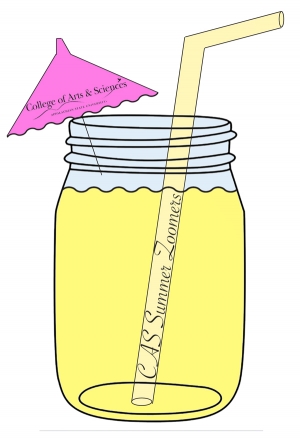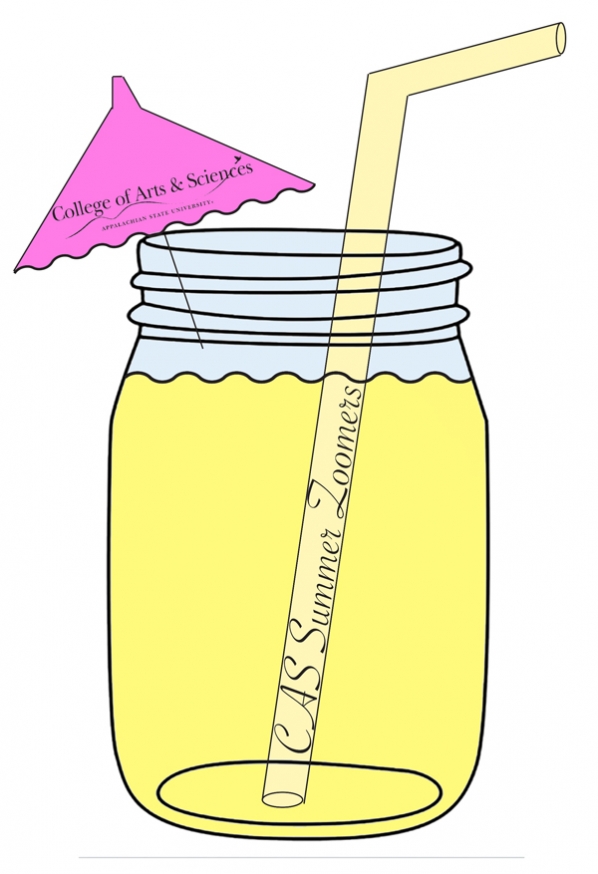Appalachian State University College of Arts & Sciences is hosting a series of Summer Zoom sessions. We hope to engage with our alumni and friends of the college during these challenging times.
Read more about sessions below and register at the links provided to get sign-in information before each session. Mark your calendars and join us! BYOB.
Thursday, July 16, 2020
4:30-6 p.m.
COVID-19 Research
Lauren Andersen, Geography and Planning
Michael Opata, Biology
Elizabeth Shay, Geography and Planning
Maggie Sugg, Geography and Planning
Registration Link
During this panel, Andersen, Opata, Shay and Sugg will provide an overview of the current state of the pandemic, importance of social distancing, discuss their efforts to identify patterns in COVID-19 incidence and respond to questions from the audience via Zoom.
Lauren Andersen is the Geographic Information Systems (GIS) lab supervisor and an adjunct instructor in the Department of Geography & Planning. Lauren is a graduate of the department who received her B.S. in GIS and Community & Regional Planning in 2017 and her M.A. in Geography in 2018. Her research interests include mountain geography, natural hazards, vulnerability and resilience and GIScience. She is currently exploring underlying disparities in the risk factors for COVID-19.
Dr. Michael Opata is an assistant professor in the Department of Biology. He is an immunologist by training with research interests in immunity to chronic infections, effects of malnutrition on immunity and susceptibility to infections. He is currently developing a neonatal animal model to help with investigating the survival of long-term protective immune cells during malaria and other chronic infections such as tuberculosis, Leishmaniasis and Lymphocytic choriomeningitis virus.
Dr. Elizabeth Shay is an associate professor in the Department of Geography and Planning. Her teaching and research in city and regional planning focuses on transportation and land use, community development and rural resilience. She is an associate director of the North Carolina Transportation Center of Excellence in Advanced Technology Safety and Policy (tsap.unc.edu), a five-university consortium working on safety and connected and automated vehicle technology.
Dr. Maggie Sugg is an assistant professor in the Department of Geography and Planning. Her research focuses on the advanced spatiotemporal analysis of environmental health illnesses and how these patterns are related to environmental, socioeconomic and climatic determinants. Her ongoing COVID-19 projects include examining the association between COVID-19 and meteorological parameters, the impact of mental health during the pandemic, and using participatory surveillance methods as a proxy for COVID-19 incidence.
Wednesday, July 22, 2020
4:30-6 p.m.
Discussion with new co-authors of new book "An Environmental History of the Civil War" (UNC Press)
Dr. Judkin Browning, History
Dr. Timothy Silver, History
Registration Link
This sweeping new history recognizes that the Civil War was not just a military conflict but also a moment of profound transformation in Americans' relationship to the natural world. Environmental factors such as topography and weather powerfully shaped the outcomes of battles and campaigns, and the war could not have been fought without the horses, cattle and other animals that were essential to both armies.
Browning and Silver weave a far richer story, combining military and environmental history to forge a comprehensive new narrative of the war's significance and impact. (Further description can be found at UNC Press: https://uncpress.org/book/9781469655383/an-environmental-history-of-the-civil-war)
Dr. Judkin Browning is the director of Graduate Studies and a professor in the Department of History. He has written “Shifting Loyalties” (2011), examining the effects of Union military occupation on the local whites, African Americans, Union soldiers and northern benevolent societies that experienced or participated in the occupation of eastern North Carolina, and a history of “The Seven Days' Battles” (2012), reassessing that campaign and the reasons for its ultimate outcome. He is also editor of the “New Perspectives on the Civil War Era” series at the University of Georgia Press.
Dr. Timothy Silver is professor in the Department of History. His areas of research focus on environmental History of North America, with emphasis on the South and Southern Appalachia; History of America's National and State parks and ethnohistory of early America. He published "Mount Mitchell and the Black Mountains: An Environmental History of the Highest Peaks in Eastern America" (Chapel Hill: University of North Carolina Press, 2003) which won several awards including the following: the 2003 Ragan Old North State Award, given by the North Carolina Literary and Historical Association for Best Nonfiction book by a North Carolina Writer; the 2004 Phillip D. Reed Memorial Award for Outstanding Writing on the Southern Environment, given by the Southern Environmental Law Center in the book category and the 2003-04 Wachovia Award for Environmental Research Achievement.
###
About the Department of Biology
The Department of Biology is a community of teacher-scholars, with faculty representing the full breadth of biological specializations — from molecular genetics to landscape/ecosystem ecology. The department seeks to produce graduates with sound scientific knowledge, the skills to create new knowledge, and the excitement and appreciation of scientific discovery. Learn more at https://biology.appstate.edu.
About the Department of Geography and Planning
The Department of Geography and Planning promotes the understanding of the spatial dimensions of human behavior within the physical and cultural systems of the earth, and the role of planning in achieving improvement in those systems. The department offers degrees in geography and in community and regional planning. Learn more at https://geo.appstate.edu.
About the Department of History
The Department of History offers a broad curriculum in local, national, regional and world history at both the undergraduate and graduate levels, which encourages history majors to develop a comprehensive approach to human problems. The study of history is an essential part of a liberal arts education and offers valuable preparation for many careers, such as law, journalism, public history, public service and business, as well as in teaching and the advanced discipline of history. Learn more at https://history.appstate.edu.

